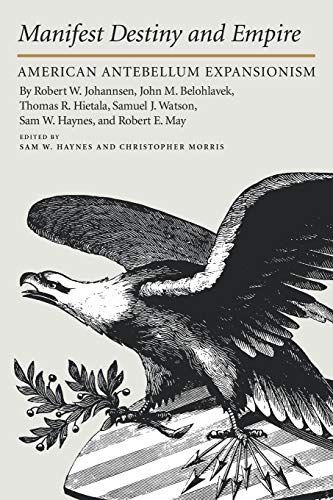
Manifest Destiny and Empire American Antebellum Expansionism
Six scholars consider important aspects of American antebellum expansion in these studies based on talks originally prepared for the Walter Prescott Webb Memorial Lectures. Robert W. Johannsen of the University of Illinois at Urbana offers fresh insight into the meaning of the term "manifest destiny," arguing for a broader definition. John M. Belohlavek of the University of South Florida takes a close look at the expansionist attitudes of Caleb Cushing, a Massachusetts politician, diplomat, reformer, and intellectual. Cushing's life and controversial career, Belohlavek argues, mirror a young republic as it began to transform itself from "union" to "nation." Thomas R. Hietala of Grinnell College examines the complicated clash of culturesthe result of Manifest Destinyand how it was viewed by observant individuals such as George Catlin, a painter who traveled and lived among Native Americans just prior to the expansionist surge of the 1840s and who opposed the destruction of Native Americans in the wake of the Anglo westward movement. Winner of the Webb essay competition for 1996, Samuel J. Watson of Rice University studies U.S. Army officers' responses to territorial expansionism between 1815 and 1846. He argues that officers' views on Manifest Destiny were far more nuanced than conventional models of romantic nationalism suggest. Sam W. Haynes uncovers the social and political complexities, including a widespread fear of Great Britain, that made Texas' annexation the most divisive issue of its day. Robert E. May of Purdue University offers a compelling examination of American filibustering during the Manifest Destiny era.